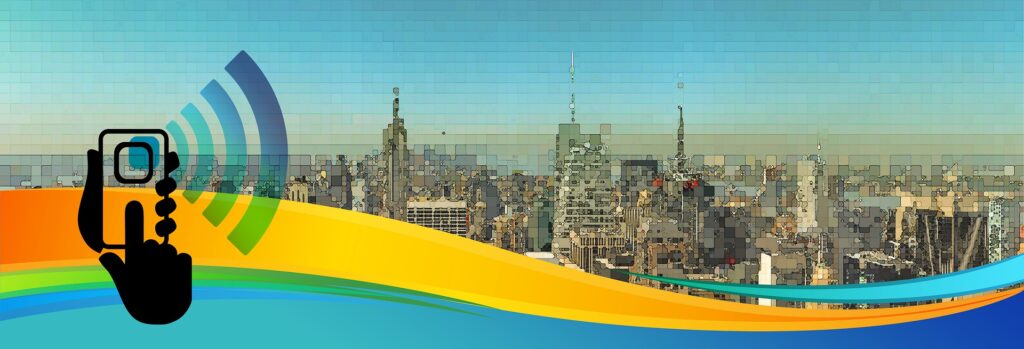Smart Cities are the need of every community with increasing challenges of climate change,
overpopulation, and rapid urbanization. A smart city is defined as a city which uses information
technology and data analysis to increase the functionality of urban systems such as energy systems,
traffic sensors, navigation tools and other digital tools of daily use.
The primary objective of a smart city is to improve the standard of life for common residents by
reduced cost. The use of digital technology within cities is crucial for every future community,
and you need exceptional digital data analytic experts to make your cities smarter.
overpopulation, and rapid urbanization. A smart city is defined as a city which uses information
technology and data analysis to increase the functionality of urban systems such as energy systems,
traffic sensors, navigation tools and other digital tools of daily use.
The primary objective of a smart city is to improve the standard of life for common residents by
reduced cost. The use of digital technology within cities is crucial for every future community,
and you need exceptional digital data analytic experts to make your cities smarter.
Invest in Smarter Cities:
The concept of smart cities is gaining popularity in the modern city development for
transforming communities to deal with the challenges of overpopulation, urbanization and poor
living standards. The use of digital technology such as mobile phone applications, sensor devices in
traffic systems and security alarm systems generate useful data which is studied by analysts to
understand the needs of people within cities. One such example is the turning on of street lights as
light falls below a certain level (sunset) by sensors installed in light poles in Zurich, Switzerland.
The development of this sensor was achieved through climate data analysis of Switzerland and its
daylight needs. This enables the government of Switzerland to save energy used on powering
light poles because they automatically turn off on sensing enough daylight.
The data analysis serves as a tool for saving the government’s resources. For example;
people’s shopping habits online are recorded and consequently; frequently sold items are kept online
while others are kept at stores only.
transforming communities to deal with the challenges of overpopulation, urbanization and poor
living standards. The use of digital technology such as mobile phone applications, sensor devices in
traffic systems and security alarm systems generate useful data which is studied by analysts to
understand the needs of people within cities. One such example is the turning on of street lights as
light falls below a certain level (sunset) by sensors installed in light poles in Zurich, Switzerland.
The development of this sensor was achieved through climate data analysis of Switzerland and its
daylight needs. This enables the government of Switzerland to save energy used on powering
light poles because they automatically turn off on sensing enough daylight.
The data analysis serves as a tool for saving the government’s resources. For example;
people’s shopping habits online are recorded and consequently; frequently sold items are kept online
while others are kept at stores only.
There is, therefore, increased investment in smarter cities through the use of data analysis and
information in many modern cities. By collecting the data of city services used by the residents,
we can create better opportunities for their prosperity. For example; online surveys filled by people
through mobile apps can depict useful information about the way people spend their money, navigate
on roads or items they shop.
information in many modern cities. By collecting the data of city services used by the residents,
we can create better opportunities for their prosperity. For example; online surveys filled by people
through mobile apps can depict useful information about the way people spend their money, navigate
on roads or items they shop.
Furthermore, many modern cities have developed a model for smart cities, such as Zurich,
Switzerland where it is evident that smarter communities improve the life of residents.
Switzerland where it is evident that smarter communities improve the life of residents.
Benefits of Smarter Cities:
Public awareness about the use of digital technology, for example; traffic congestion, can be shown
by mobile notifications to the public through mobile apps such as Google Maps.
Consequently flow of new traffic to jammed roads could be avoided.
Environmental friendly cities: Data science can help in understanding people’s shopping habits through online surveys at shopping websites. For example; TJ Maxx keeps a record of every user’s shopping history and recommends similar products to the customer, the next time he/she visits the website. By understanding people’s shopping habits, recommendations can be given to the public through mobile apps in using items with minimum environmental impact. Likewise, the use of plastic bags can be minimized by educating people about the shops where biodegradable items can be obtained; through mobile applications
Mobile apps are improved by software developers in government organizations by making updates after receiving recommendations from the public such as; people use Google Maps to find directions, nearby restaurants, banks, and other public spots. Google constantly monitors that how people use their apps and makes changes in each app based on user activity. In other words, ATM locations were not visible in previous version of Google Maps, but people’s search activity enable Google to improve its application.
Inclusive community development: The data analysis from infrastructure services such as street lights and traffic signals, forms the basis of newer communities which are neither too isolated nor too crowded. For example,; Google Maps reports more traffic congestion in narrower streets, therefore, for new communities, streets are expanded by setting a minimum road length as a standard. This prevents future community developers to have narrow streets.
Smarter cities improve the sustainability of towns through efficient use of digital technology; hence; quality of life for residents is markedly improved. The societies with smart technologies are great value for money; therefore people tend to invest more in smart homes and buildings so that their standard of living is better than the rest. Consequently, the value of your land increases as compared to the rest of real estate; if you decide to invest in smarter homes.
By collecting user data, resources and assets use efficiency of any government or business is ensured. In other words, user data analysis helps in understanding of people’s needs and preferences in purchasing products and using government services. As a result, the government improves services within a city through user feedback. Thus smarter communities save a government’s resources in addition to saving people’s time

